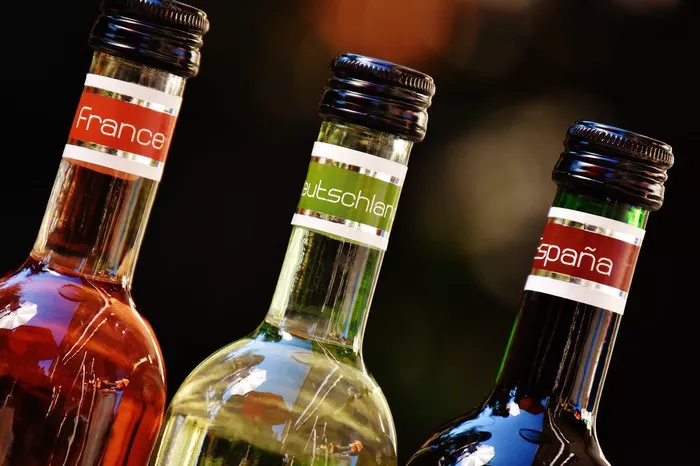The allure of a cocktail, with its tantalizing blend of spirits, mixers, and flavors, often leads to the question: Can one cocktail truly get you drunk? This query has sparked debates among individuals seeking a night of mild relaxation and those wary of the potential effects of alcohol. Delving into this topic involves understanding the complex interplay between alcohol content, individual physiology, and the factors that determine intoxication. Exploring these aspects sheds light on whether a single cocktail has the potency to induce inebriation.
Alcohol Content: The Determining Factor
Can one cocktail get you drunk solely based on its alcohol content? The answer primarily hinges on the concentration of alcohol within the beverage. Cocktails vary widely in their alcohol content, with some recipes containing higher percentages of spirits compared to others. For instance, a standard martini typically contains around 2 ounces of spirits, while a Long Island Iced Tea combines various spirits, resulting in a higher alcohol concentration. Despite this variance, most cocktails tend to contain between 0.5 to 2 ounces of alcohol, which may not be enough to cause significant intoxication with just one drink.
Body Weight and Tolerance: Personal Factors at Play
The impact of a single cocktail on intoxication is not solely dependent on the beverage’s alcohol content. Body weight and an individual’s tolerance to alcohol play pivotal roles in determining the effects of one drink. Larger individuals often require more alcohol to reach the same level of intoxication as someone with a smaller build. Additionally, frequent drinkers may develop a tolerance to alcohol, necessitating higher amounts to experience the same effects. However, even for those with higher tolerance levels, one cocktail can still prompt a slight elevation in mood or relaxation without inducing overt drunkenness.
Metabolism and Absorption: Speed Matters
The rate at which alcohol is metabolized and absorbed into the bloodstream significantly impacts the effects of a single cocktail. Factors such as food consumption before drinking, genetic predisposition, and individual metabolic rates influence how quickly alcohol enters the bloodstream. Consuming a cocktail on an empty stomach leads to faster absorption, intensifying its effects. However, despite rapid absorption, one cocktail might not be adequate to cause noticeable intoxication in individuals with efficient metabolism, especially if consumed over an extended period.
Alcohol Concentration and Legal Limits: A Delicate Balance
The question persists: Can one cocktail get you drunk enough to exceed legal limits? Understanding legal alcohol limits is crucial, particularly in regions where strict regulations govern blood alcohol concentration (BAC) while operating a vehicle. On average, one cocktail might elevate BAC levels but is unlikely to surpass legal limits in most cases. However, caution must be exercised, as individual responses to alcohol vary, and exceeding legal limits can have severe legal and safety consequences.
Psychological Expectations: Mind Over Matter?
The psychological aspect of consuming alcohol cannot be disregarded when pondering whether one cocktail can induce drunkenness. Expectations and mindset before drinking influence an individual’s perceived level of intoxication. If one believes strongly that a single cocktail will result in significant inebriation, psychological factors might amplify the perceived effects, leading to a subjective feeling of being more intoxicated than one truly is.
Mixers and Dilution: Impact on Alcohol Potency
The composition of a cocktail, including mixers and diluents, affects its overall alcohol potency. Some cocktails incorporate juices, sodas, or other non-alcoholic elements that dilute the drink’s alcohol content. Consequently, the presence of mixers might lessen the impact of the alcohol, making it less likely for one cocktail to cause noticeable intoxication.
Individual Variability: No One-Size-Fits-All Answer
In essence, the question, “Can one cocktail get you drunk?” lacks a definitive, universal answer due to the multitude of variables at play. Individual differences in metabolism, tolerance, body composition, and psychological factors contribute to varying responses to alcohol. While one cocktail may lead to a mild buzz in some individuals, others may experience a greater impact. Context, timing, and personal factors all intertwine to determine the outcome of consuming a single cocktail.
Mitigating Risks: Responsible Consumption
Regardless of whether one cocktail can induce drunkenness, responsible alcohol consumption remains paramount. Understanding personal limits, respecting legal regulations, and prioritizing safety are crucial aspects of enjoying alcoholic beverages. Alternating drinks with water, eating before drinking, and knowing when to stop are fundamental practices that promote responsible drinking habits.
Conclusion
The question, “Can one cocktail get you drunk?” encompasses a complex web of variables. While the alcohol content of a single cocktail may contribute to slight intoxication, individual factors like body weight, tolerance, metabolism, and psychological expectations significantly influence the outcome. Acknowledging these elements underscores the importance of responsible alcohol consumption. Ultimately, while one cocktail might not lead to severe intoxication for many, moderation and mindfulness remain key principles in enjoying alcoholic beverages without adverse consequences.


